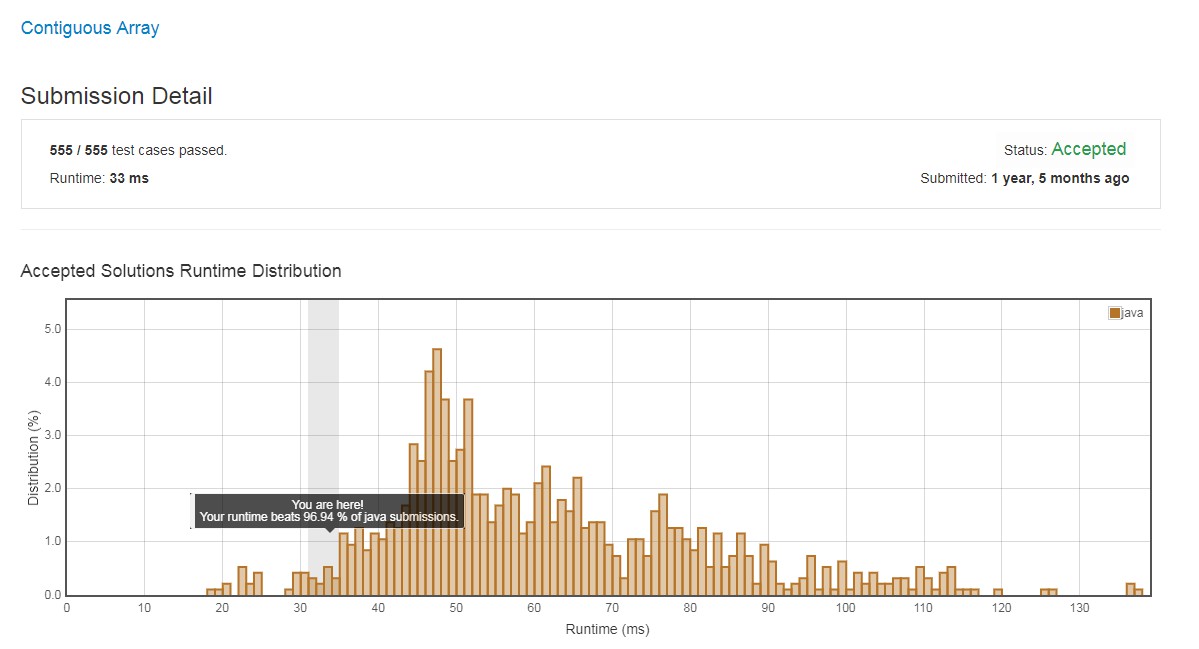题目如下:
Given a binary array, find the maximum length of a contiguous subarray with equal number of 0 and 1.
Example 1:
1 | Input: [0,1] |
Example 2:
1 | Input: [0,1,0] |
题目大意
给定一个只包含0和1的数组,找出数组中0和1数量相等的最长子序列。
思路
将0变成-1,然后遍历整个数组,求出前面的的数字之和,同时将这个数字放在HashSet中记录,如果之后的遍历之中出现了相同的和,那么说明这一段长度内的0和1数量相等,然后把这些子序列中的长度最长的那个记录并返回即可。整个数组只遍历了一次,因此时间复杂度是O(n),使用了HashSet记录数组和, 空间复杂度比较难分析,与输入有关,最坏情况是O(n),最好情况是O(1),代码如下:
1 | public int findMaxLength(int[] nums) { |
提交AC,运行时间75ms

提交结果
很好奇的看了下时间最短的代码,时间只有35ms,给大神们跪了。。。
1 | public int findMaxLength(int[] nums) { |
大概看了代码,思路是类似于状态机。先新建一个2倍nums长度+1的数组,从新数组中间的位置开始,对于nums中每一个数,如果是0,则新数组指针往左移动一格;如果碰到了1,则指针往右移动一格。同时在新位置判断,如果此位置之前没有存储过数值,则在此位置存储i,否则说明目前为止出现过0和1数量i相等的子序列,并且起始位置即为此位置存储的i,因此直接计算子序列长度即可。依次遍历,这样就能把最长子序列求出来。该数组遍历了一次,因此时间复杂度是O(n),使用了2*n+1长度的辅助数组,因此空间复杂度是O(n)。

提交结果
